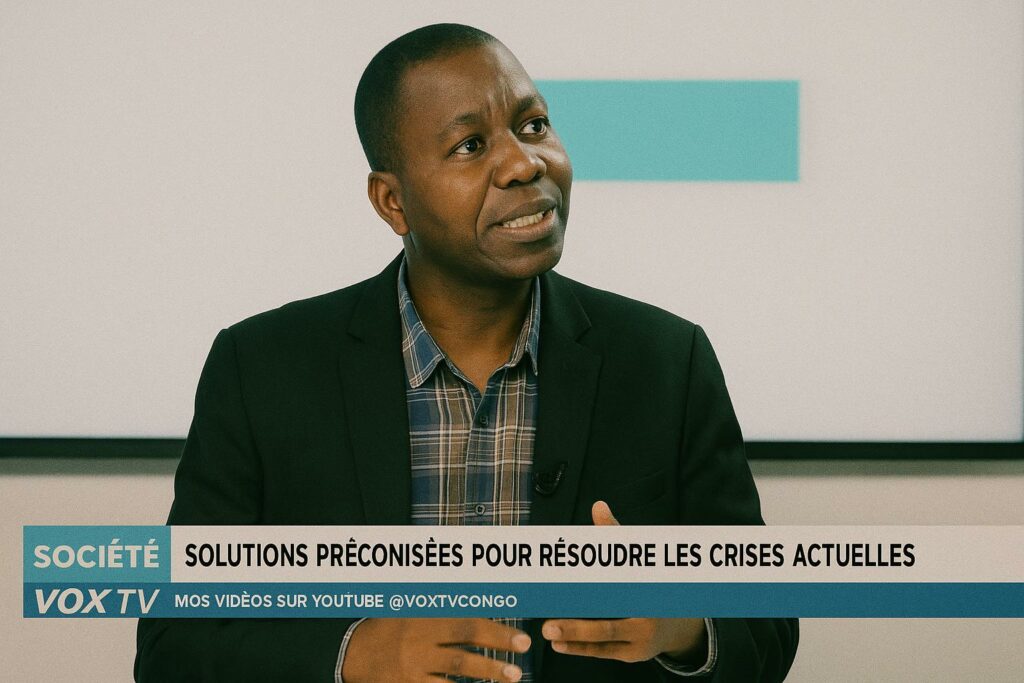Batola’s political pedigree and his moment on the national stage
The name Franck Davy Batola rarely featured in diplomatic dispatches until late 2023, when the legal-scholar-turned-advisor began circulating a memorandum titled “Nouvelle Confiance, Nouvelle Gouvernance” to parliamentarians in Brazzaville. A former lecturer at Marien-Ngouabi University and, briefly, a consultant to the Economic Commission for Central Africa, Batola has cultivated an image of technocratic independence while maintaining discreet ties to the governing Parti congolais du travail, according to two senior officials who requested anonymity. His recent media interventions, amplified by independent broadcaster Vox and the pan-African daily Jeune Afrique, have cast him as a potential interlocutor between an impatient youth demographic and an entrenched political elite (Jeune Afrique, 7 February 2024).
Mapping the crises that test Brazzaville’s resilience
The Republic of the Congo’s polycrisis is not merely rhetorical. On the security front, the lingering aftermath of the 2016-2017 conflict in the Pool region continues to impede rural commerce, while intermittent flare-ups along the Oubangui River have heightened humanitarian strains, displacing an estimated 25 000 people last year (UNHCR situation report, November 2023). Economically, public debt hovers near 90 percent of GDP despite a recent rescheduling arrangement with Chinese creditors (IMF Article IV Consultation, December 2023). Governance indicators remain stubbornly low; Transparency International ranks Congo 162nd out of 180 on corruption perception, feeding domestic pessimism. In such a context, any reformist agenda courts scepticism by default.
Security and governance: from Pool to Kivu, a roadmap of de-escalation
Batola’s security plank rests on a dual promise: accelerated demobilisation of remaining Pool combatants and a preventive diplomacy task force with Kinshasa to keep the eastern DRC insurgencies from spilling across the river. He proposes reallocating 2 percent of the defence budget to community reconciliation committees chaired jointly by church leaders and female entrepreneurs—an echo of Liberia’s peace huts model. In broadcast remarks, he argued that “local authority rebuilt from the bottom up is cheaper than perpetual reinforcement from the top down.” Senior military officers contacted by this review greeted the idea of trimming defence allocations with caution, contending that poorly equipped border units would be further weakened. Yet regional observers note that existing defence outlays already exceed those of comparably populated states such as Gabon, suggesting fiscal room for manoeuvre (Stockholm International Peace Research Institute, 2022 data).
Fiscal realism: financing recovery without mortgaging sovereignty
Most attention, however, has settled on Batola’s economic chapter. He advocates an oil-stabilisation trust fund governed by an independent board that would publish quarterly audits, mirroring Ghana’s Petroleum Holding Fund. The proposal was welcomed by civil-society watchdogs like Publiez Ce Que Vous Payez, yet brushed aside privately by an energy-ministry adviser who described it as “textbook idealism in a political ecosystem resistant to sunlight.” Batola further urges a phased removal of fuel subsidies—currently costing Brazzaville nearly 3 percent of GDP—offset by targeted cash transfers delivered through mobile money platforms. His allies cite Senegal’s recent Net Transfer Programme as proof of concept. The World Bank, in a confidential aide-mémoire seen by this publication, has signalled conditional support, warning nonetheless that subsidy reform without electoral consensus has toppled governments from Quito to Khartoum.
Regional diplomacy and global partners: calibrating external leverage
Recognising Congo’s limited fiscal space, Batola looks outward. He calls for a reset of the stalled Inga III power-purchase agreement with the DRC to secure cheaper electricity and for a renegotiation of the 2018 Belt and Road debt package, replacing resource-backed loans with longer-tenor, lower-coupon sovereign paper. Beijing’s embassy in Brazzaville declined official comment, though an academic at Peking University’s Institute of African Studies suggested in an interview that “Paris Club-style renegotiation without strong collateral would be unprecedented in China’s lending posture.” On the multilateral front, Batola insists Congo should leverage its Congo Basin forests to secure carbon-credit finance, tying conservation targets to verifiable remote-sensing data. The African Development Bank has already piloted a similar instrument in Côte d’Ivoire, offering a potential blueprint.
Domestic skepticism and the test of political will
None of these prescriptions will advance without elite buy-in. A senior senator from the presidential majority told this magazine that Batola “speaks the language the Bretton Woods crowd likes to hear, but he forgets the arithmetic of patronage.” Opposition figure Claudine Munari, by contrast, praised the plan’s transparency clauses but questioned its silence on constitutional term limits. Meanwhile, the Congolese diaspora in Paris organised an online forum in January that drew 4 000 viewers in which participants urged Batola to clarify his political ambitions beyond policy advocacy. His entourage insists he is not preparing an electoral bid, yet allies have begun informal outreach to regional governors ahead of next year’s legislative campaign.
Diplomatic missions in Brazzaville are likewise hedging. A European envoy characterised Batola as “technically sound, politically untested.” An American counterpart underscored Washington’s support for subsidy reform but cautioned against “policy adventurism that could ignite street protests.” For now, Batola’s memorandum remains a discussion document. Whether it evolves into a governing programme will depend less on his eloquence than on the readiness of Congo’s power brokers to confront the costs of the status quo.

